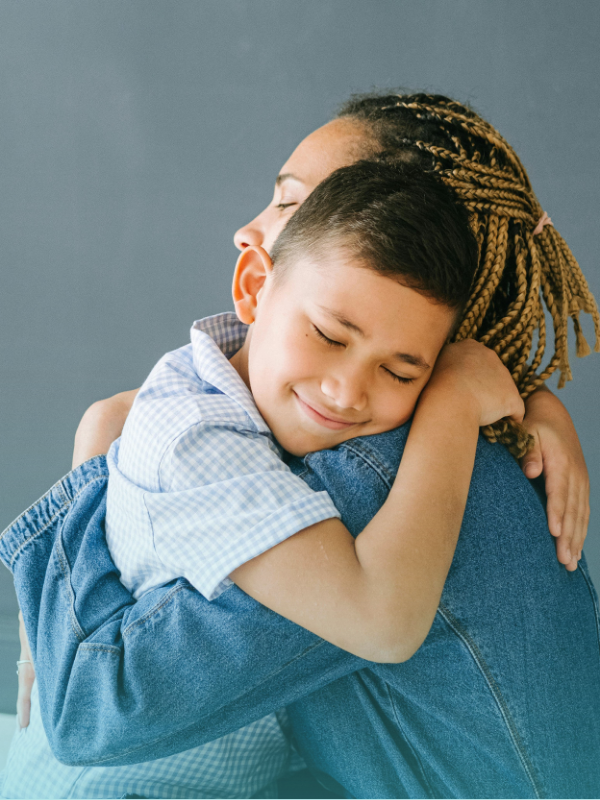Nurturing emotional health in kids doesn’t have to be complicated. In fact, the most powerful ways to support your child’s feelings are often the simplest: listening closely, showing up with patience, and helping them name what they feel. Emotional health is just as important as physical health and it starts at home.
Why Emotional Health Matters (Even at a Young Age)
Children who learn how to manage their feelings early in life are more likely to form strong relationships and develop confidence.
According to the Child Mind Institute, one of the most effective ways to nurture emotional health in kids is by modeling healthy coping skills like naming your feelings, taking a break, or asking for help when you’re overwhelmed (Child Mind Institute, 2023).
What Does Emotional Health Look Like?
It’s not about being happy all the time. Emotionally healthy kids:
- Know how to name basic feelings (like sad, mad, scared, excited)
- Can ask for help when they’re overwhelmed
- Bounce back from disappointment or change
- Show empathy toward others
And most importantly, they know it’s okay to feel a full range of emotions.
How Can Parents Support Their Child’s Emotional Health?

You don’t need a degree in psychology. What you do need is consistency, love, and a few simple tools you can return to day after day:
1. Name the Feeling Out Loud
Try saying: “It looks like you’re feeling frustrated. That’s okay. I feel that way too sometimes.” This helps your child build a vocabulary for their inner world.
2. Create Calm-Down Rituals
Have a cozy corner, a favorite stuffed animal, or a simple breathing trick. Rituals help kids feel safe and give them a tool they can reach for during meltdowns.
3. Model What You Want to Teach
When you talk about your own emotions—“I’m feeling overwhelmed, so I’m going to take a few deep breaths”—your child learns by watching.
4. Stick to Predictable Routines
Routines build emotional safety. When kids know what to expect, they feel more secure and less reactive. Want a great example? Check out Summer Routines for Kids: How to Keep Structure Without the Stress
5. Practice Problem-Solving Together
Instead of jumping in to fix every problem, say: “What do you think we should do about this?” This builds resilience and decision-making.
When Should You Worry?
Some emotional ups and downs are part of being a kid. But if your child is constantly anxious, withdrawn, angry, or having a hard time with basic routines, it might be time to reach out for support. Trust your gut – and know that asking for help is a sign of strength, not failure.
Frequently Asked Questions
What are age-appropriate ways to talk about feelings?
With toddlers, keep it simple: “You’re sad because your toy broke.” For older kids, try asking open-ended questions like, “What happened today that made you feel upset or proud?”
Should I avoid talking about my own emotions around my child?
No – within reason, it’s helpful! Sharing your feelings in calm, age-appropriate ways teaches kids that all emotions are normal and manageable.
Conclusion
Nurturing emotional health in kids doesn’t require a perfect script. It just requires presence, patience, and the willingness to grow alongside your child. Every time you sit with them in their big feelings, you send a powerful message: “You’re safe. You’re loved. You can get through this.”
At Parent Pathways Academy, we’re here to walk with you – because raising emotionally strong kids begins with emotionally supported parents.
Ready to keep building emotional resilience at home? Explore our interactive lessons, parenting badges, and family wellness resources – all for FREE today!
References
Child Mind Institute. (2023). How to model healthy coping skills. Retrieved from https://childmind.org/article/how-to-model-healthy-coping-skills/

